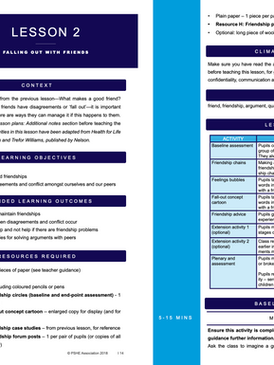PSHE, including RSE & No Outsiders

"PSHE education helps pupils prepare for all the opportunities, challenges, life decisions and responsibilities they'll face."
PSHE Association
Personal, Social, Health and Economic (PSHE) education is a subject through which pupils develop the knowledge, skills and attributes they need to manage their lives, now and in the future. It helps children and young people to stay healthy and safe while preparing them to make the most of life and work. When taught well, PSHE education also helps pupils to achieve their academic potential.
Our Programme of Study sets out learning opportunities for key stages 1 & 2, based on three core themes:
CORE THEME 1: HEALTH AND WELLBEING
CORE THEME 2: RELATIONSHIPS
CORE THEME 3: LIVING IN THE WIDER WORLD
At St James CE School, we consider that Relationships and Sex Education (RSE) is an integral part of the Personal, Social and Health Education (PSHE) and Citizenship curriculum and is linked to that for Science. The focus of the subject is on building healthy relationships in all aspects of life. We aim to offer pupils a carefully planned programme on human development, relationships, sexuality, and family life within a safe, comfortable atmosphere built around our Christian values. The programme is set within a moral framework and matched to the pupils’ level of maturity. This RSE policy reflects the requirements of the DCSF Sex and Relationship Guidance.

At St James, we use PSHE Association's scheme of work. Please see samples of the scheme below.
For more information, please contact our PSHE & RSE lead, Mrs S Pilling via the school office.

At St James CE Primary Academy, we follow guidance from the Government on how to teach British Values. No Outsiders is part of our Personal, Social, Health and Emotional (PSHE) curriculum and enhances our teaching on relationships as part of our PSHE curriculum.
It is taught through a series of picture books addressing the different areas of the Equality Act. This part of the curriculum links to British Values and Social, Moral, Spiritual and Cultural learning (SMSC).
As this is part of the school curriculum, every child takes part. No Outsiders supports quality teaching and learning. It challenges stereotypes and the use of derogatory language in lessons and around school.
No Outsiders strategies reflect and value the diversity of pupils’ experiences and provide pupils with a comprehensive understanding of people and communities beyond their immediate experience.
How we will achieve this ethos?
-
Shared voice and language
-
Weekly assemblies
-
Half termly lessons - linked to literature
-
Displays
-
Praise and sanction
-
All stakeholders buy-in
-
High profile
-
Books and other literature which celebrate diversity in our library and classrooms which can be taken home.
Why is this ethos so important?
Our children leave us destined for the workplace, for a role in modern Britain. We want our children to champion inclusion and celebrate diversity. To feel that they never are an outsider and to welcome all that they meet. We believe that no one is born to hate - it is learnt - we need to teach another lesson to spread love and show love.
For an overview of 'No Outsiders', please watch this video:












